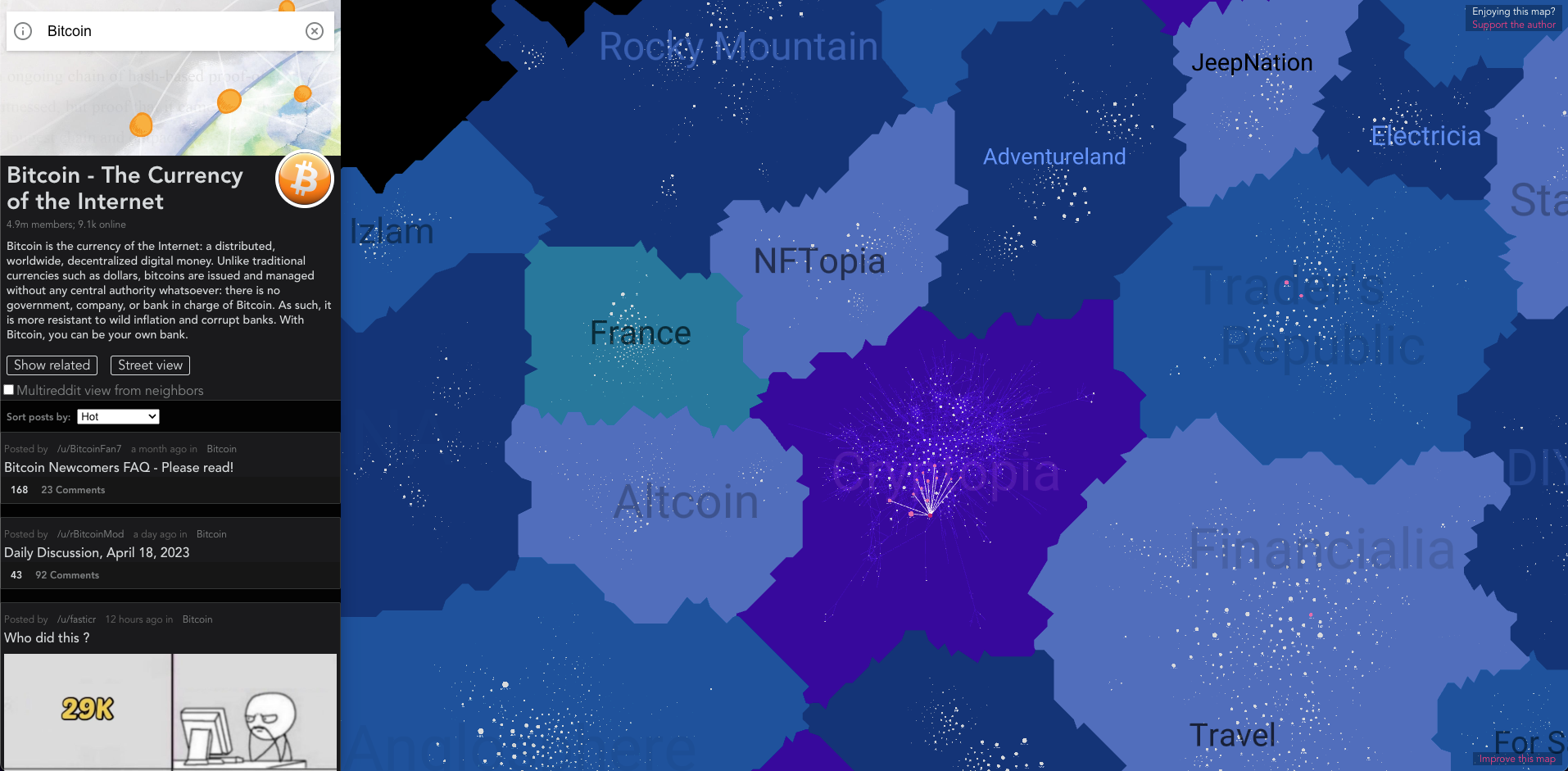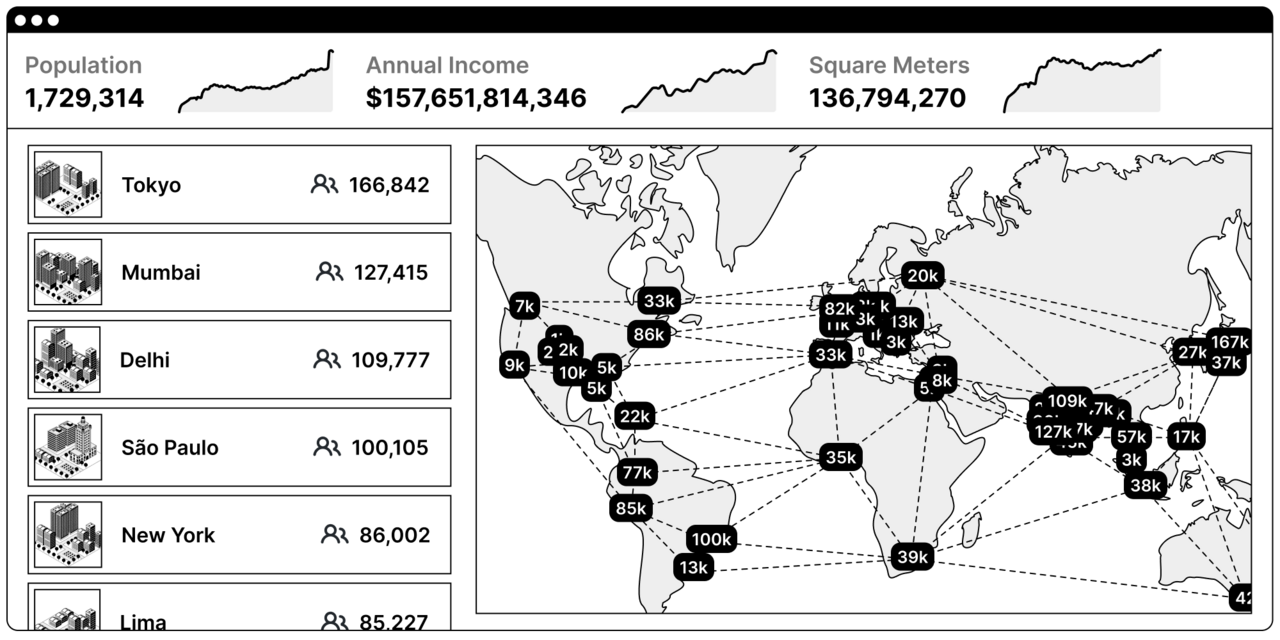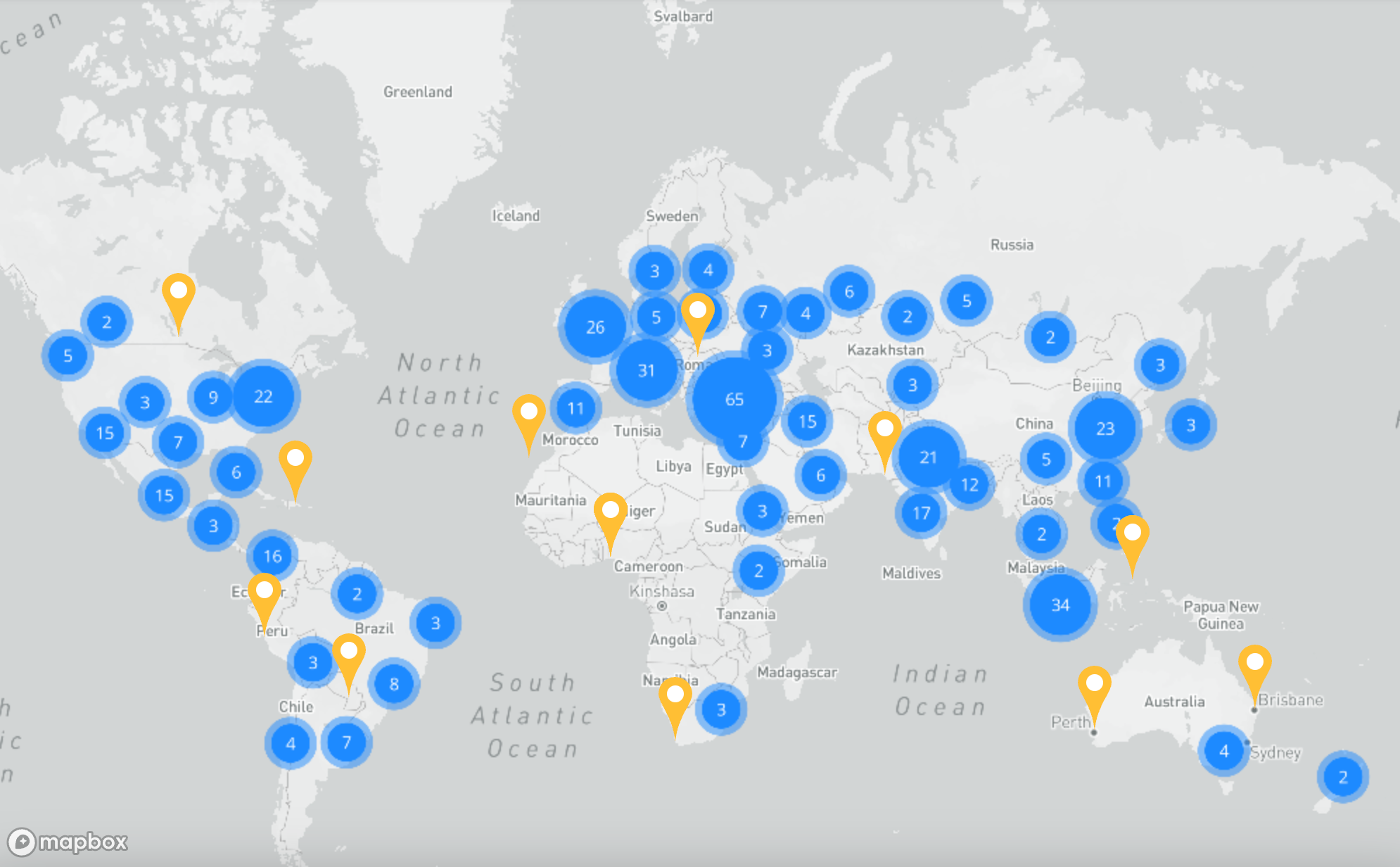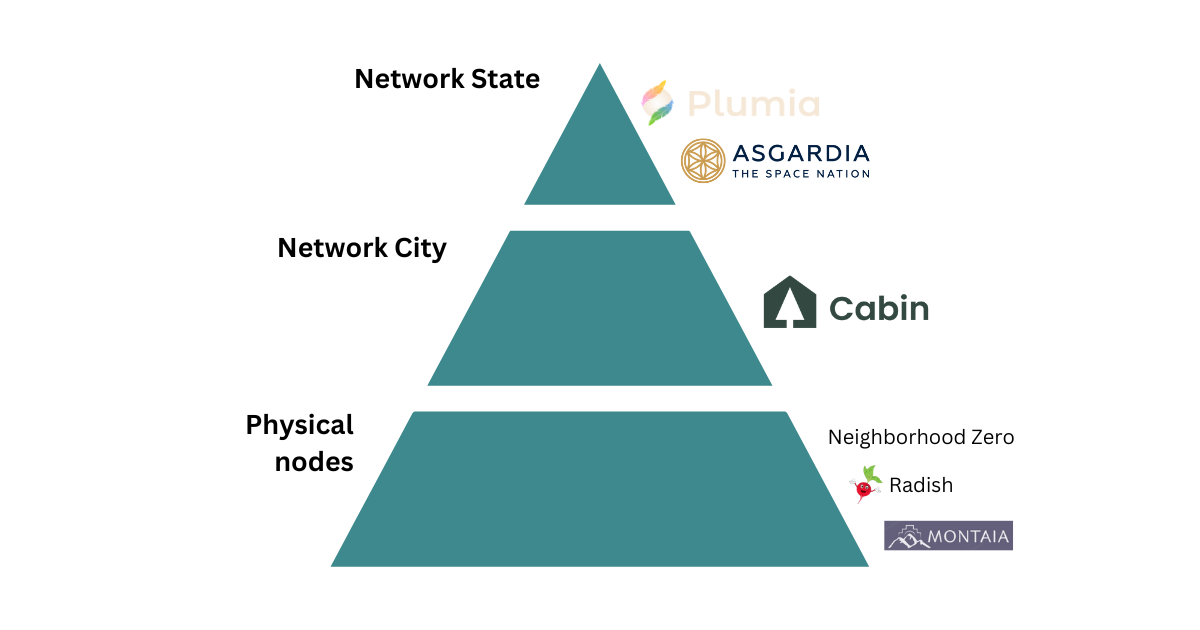Internet Countries: What The Hell Are They And Why Should You Care

Here's something that may shock you. The concept of a country, as we know it today, is less than 400 years old.
The modern nation-state is a result of the 1648 Treaty of Westphalia (yeah like those cool VW vans) which concluded decades of war in Europe and established joint recognition of borders among European countries.
So, if modern countries are such a novel concept, is it possible that we are at the precipe of an evolution of what it means to be a country?
That’s exactly what some experts believe, and their bet is that the borders of future countries will be drawn up on the internet, not on land.
If that sounds crazy to you then buckle up…
Because I think that not only is this prediction true, it’s a lot closer to happening than anyone thinks!
But before you can understand the future of countries we need to discuss what a country actually is...
What is a Country Anyway?
Countries, Nations, and States, could you define the difference between the three?
Most people would likely mess it up, because... well, it's kind of confusing.
So let's quickly go over it!
The terms country & State (when expressed with a capital 'S') are interchangeable and used to identify an area that has:
- an internationally recognized border (although some land disputes are OK)
- people that live there on an ongoing basis
- an organized and active economy
- a government that provides public services
- sovereignty (singular control over its territory)
- recognition from other countries
A lower 's' state is a division of a country, with the easiest example being the United States (states?) of America.
A nation, on the other hand, has nothing to do with land borders but is all about homogeneous communities of people that share a common culture - a language, religion, institutions, or historical experience.
When a nation of people has its own State, it's called a nation-state.
Great examples of nation-states include France, Germany, Japan, and Egypt where all people have a deep common culture & identity. This is what most people think of when they hear the word "country".
Some countries however can be made up of multiple nations.
Canada, for example, has 2 nations - French and English. Belgium, which has a French and Flemish part, is also a multination State.
The key thing to understand about multination States is that it's not enough to have a lot of ethnic diversity.
Canada and Belgium don't just have large communities of people with different identities, they also have separate organized institutions that are independent, yet work in sync.
Even the US can be categorized as a multination State since Native American reservations have semi-sovereignty over their lands and even have their own police forces.
On the flip side, there are nations without a State, for example, the Kurds.
There are also some countries that don't fit into these descriptions as nicely...
The United Kingdom, which the British Government in 2003 described as "countries within a country", is one such example along with the Kingdom of the Netherlands which technically comprises 4 separate countries - the Netherlands, Aruba, Curaçao, and Sint Maarten.
Online Communities or Internet Nations?

One of the most beautiful things about the internet is that no matter who you are or what you're into, you can find a home on the internet.
Reddit, which describes itself as the "front page of the internet", has over 138,000 active communities organized around different interests.
From r/disneyparks where people can discuss their love of Disney parks and the best way to explore them, to r/Bitcoin (self-explanatory) and r/FatFIRE where people discuss how to become financially independent & retire early but with A LOT of money.
Even though members of these communities can be spread out all over the world, they potentially have more in common with each other than their next-door neighbors.
This begs the question - at what point do online communities become internet nations?
This may sound crazy at first but really stop and think about it...
Remember that the definition of a nation is a group of people that share a common language, religion, institutions, or history.
Let's take the crypto community as an example:
Language - The crypto community is notorious for having its own crypto-speak with terms like "diamond hands" - never selling your crypto, or "HODL" - Hold On for Dear Life.
Religion - I don't think it's a crazy stretch to call the Bitcoin Whitepaper a religious text. It's written by an unknown entity, has identifiable ritual practices like the Bitcoin Halving, outlines a set of commandments like what a block size is, and describes a "spiritual aspiration" when crypto overtakes Fiat currencies.
Institutions - crypto exchanges like Coinbase.
History - Most crypto members share a core belief about what money is supposed to be and even tend to have similar stories of how they became interested in crypto.
Crypto may be an easy example, but if you look at the internet with these glasses on you will begin to see Internet Nations everywhere.
If we accept the notion that Internet Nations exist, what does it take for one of them to become an Internet Country, and how would that even happen?
How to Start an Internet Country

In his book The Network State, Balaji Srinivasan describes a network-state as:
"a highly aligned online community with a capacity for collective action that crowdfunds territory around the world and eventually gains diplomatic recognition from pre-existing states."
In other words, a country on the internet.
Balaji lays out a step-by-step process of how a network-state should be started in order for it to be a peaceful and prosperous process:
- Start an online community
- Organize community members for collective action
- Build an economy & physical presence (meet-ups)
- Crowdfund physical nodes (AKA buy properties & land)
- Connect physical communities digitally
- Conduct a census to prove population size, income, & total real estate portfolio
- Gain diplomatic recognition from other countries
I believe that not only has this process started, but the steps are happening simultaneously.
As I already showed with Reddit, niche online communities are abundant and have millions of members. The r/Bitcoin subreddit for example has over 4.9 million members, a population larger than the entire country of Panama!
Some of these communities are also organizing around specific causes.
Perhaps the best-known example by remote workers and digital nomads is Plumia, which has the grand goal of becoming the first globally recognized internet country by 2032.
Their short-term goal, however, is to launch a Nomad Border Pass which will serve as a visa, giving holders access to 10 different countries for 3 months each.
1. Start an online community ✅
2. Organize community members for collective action ✅
Then there is Asgardia, the first "space nation" with a population of over 1.1 million people spread out all over the world.

Asgardia is focused on "uniting people in a transnational, equal and progressive society to build a new home for humanity in space and protect our cradle — planet Earth" and seems to be following the Network State playbook to a T.
It has its own cryptocurrency called Solar which is a stablecoin fixed 1:1 with the Euro. Asgardians (members of the community) are able to hold Solar and even launch businesses serving the nation's population.
Asgardia also organizes regular events both online and IRL which include scientific and space exploration discussions, as well as elections for governance positions such as City Mayors, Parliament Members, or even Head of Nation.
3. Build an economy & physical presence (meet-ups) ✅
Network Cities and Neighborhoods
All countries are made up of a collection of cities.
If Plumia and Asgardia are early examples of internet countries, then where are the internet cities?
Cabin City is one of the best examples of a Network City, but unlike regular cities, it does not have a single location, instead, it's decentralized on the internet with multiple physical locations AKA neighborhoods.
Confused?
Think of it this way...
If you live in NYC you are governed by the local laws of the city. You pay NYC tax and use NYC infrastructure. However in reality you don't live in NYC, but in one of the city's neighborhoods, for example, Brooklyn.
It just so happens that all NYC neighborhoods are located physically next to each other.
Cabin City works the same way, only that the city's neighborhoods are spread out instead of being colocated, and the City provides the backbone of rules and governance.
So far Cabin City is comprised of 3 neighborhoods:
- Neighborhood Zero (Texas Hill Country outside of Austin)
- Montaia (Sierra Nevadas)
- Radish (Bay Area, CA)
Cabin City is also in talks with multiple other potential neighborhoods located all over the world, from Colorado and Puerto Rico to Portugal and Bangalore.
These neighborhoods are all individual projects, launched by different groups of people but join Cabin City in order to use the tools they've developed for managing and funding projects.
There is no official link between Cabin City and a network state like Plumia... yet!
It's not crazy to imagine that some years into the future, Plumia and Cabin City could team up to allow Cabin residents to easily gain a Nomad Border Pass...
Or that Cabin City will join Asgardia as its first Earth-based "territory" and adopt Solar as its official currency.
These scenarios sound like science fiction today, and yet it's easy to see how these projects click together like pieces of the same puzzle.

4. Crowdfund physical nodes (AKA buy properties & land) ✅
5. Connect physical communities digitally ✅
Balaji's Network State suddenly doesn't seem so far-fetched, and I believe that over the next decade, we will see more projects launch further filling out the Network State pyramid above.
Why You Should Care About Internet Countries
Today we group people based on something they had no choice over - where they were born.
This single roll of the dice can affect the entire course of a person's life.
If you're lucky to be born in a wealthy country then the deck is stacked in your favor.
You have access to a stable economic system, a strong social safety net, have first pick of the best jobs, and likely hold a strong passport that provides you massive freedom of mobility.
If you're born in a developing country, on the other hand, you will have a much harder time attaining these privileges.
It seems silly that something a person has no control over determines so much of their future.
Internet countries are a possible off-ramp for such scenarios.
They could provide you with increased mobility compared to your birth passport (Plumia's Nomad Border Pass), the chance to start a business or get paid in a stronger currency (Asgardia), or even help you find a place to live (Cabin City).
Of course, this isn't a utopian vision, and internet countries will have to have a way of filtering people who are not a good fit for new citizens, likely based on skill set and core beliefs, but it's still a far easier process than the mess that is modern immigration.
The First Globally Recognized Internet Country
The final step in Balaji's plan for starting a Network State is to gain diplomatic recognition from other countries.
Make no mistake, this is the hardest step in the process because by recognizing a country with no borders as a real country, nation-states will break the monopoly on the only thing they hold all the cards on - land.
But that's not to say that it's hopeless.
Plumia's Nomad Border Pass is a really smart and sneaky way of starting to get countries comfortable with the idea of negotiating with an online community.
Then there is the relationship between Belize and Taiwan.
When I visited Belize in 2022 I noticed that there were many Asians living there and running businesses, as well as many streets which carried Asian names.
After asking a local expert about it, I learned that Belize has many Taiwanese immigrants, and receives a lot of investment money from Taiwan because it's one of a handful of countries that publicly recognizes Taiwan as an independent country.
Perhaps Internet Countries of the future can learn something from this relationship.
